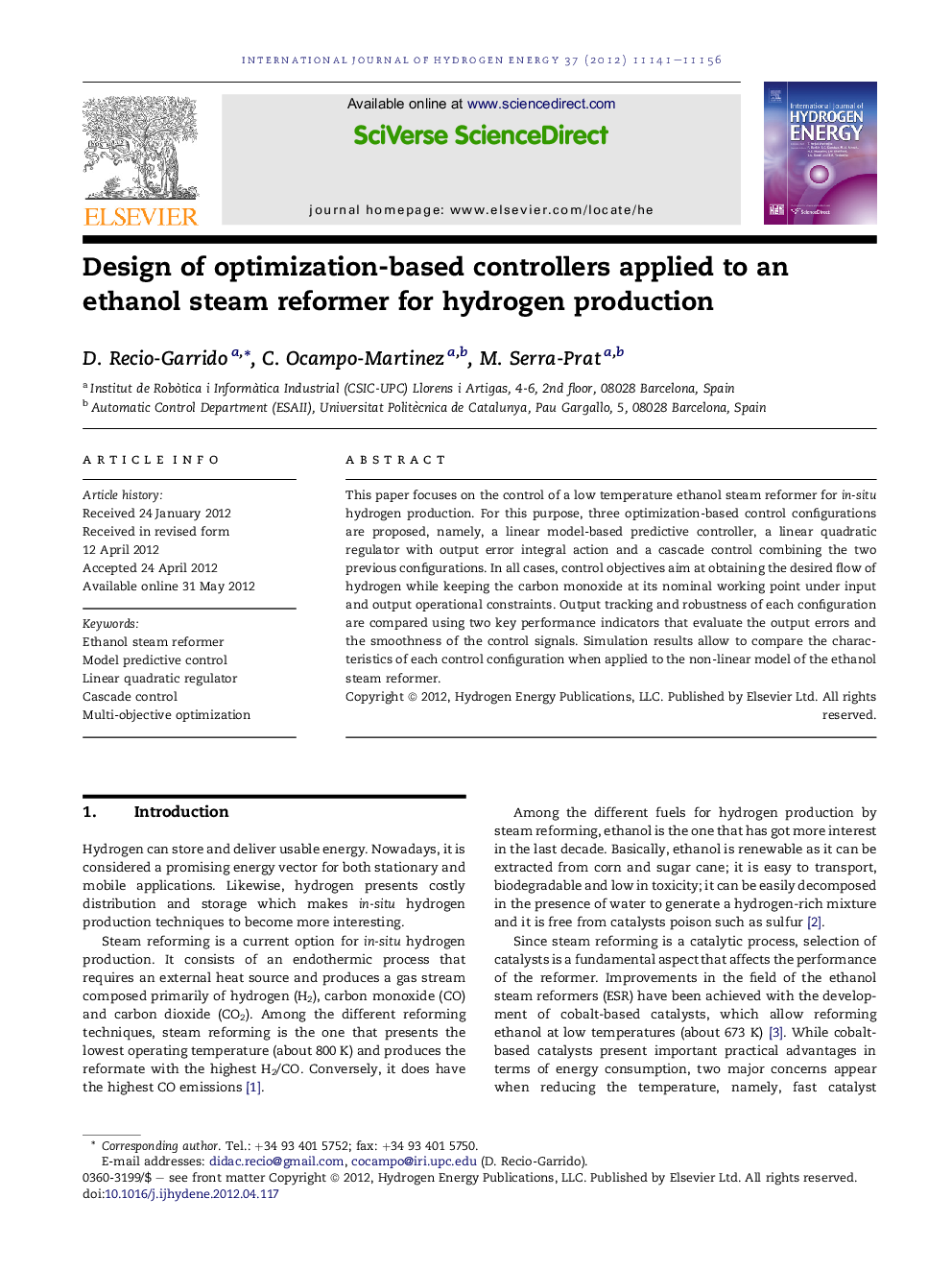| Article ID | Journal | Published Year | Pages | File Type |
|---|---|---|---|---|
| 1276278 | International Journal of Hydrogen Energy | 2012 | 16 Pages |
This paper focuses on the control of a low temperature ethanol steam reformer for in-situ hydrogen production. For this purpose, three optimization-based control configurations are proposed, namely, a linear model-based predictive controller, a linear quadratic regulator with output error integral action and a cascade control combining the two previous configurations. In all cases, control objectives aim at obtaining the desired flow of hydrogen while keeping the carbon monoxide at its nominal working point under input and output operational constraints. Output tracking and robustness of each configuration are compared using two key performance indicators that evaluate the output errors and the smoothness of the control signals. Simulation results allow to compare the characteristics of each control configuration when applied to the non-linear model of the ethanol steam reformer.
► Dynamic model and behavioral analysis of a low temperature ethanol steam reformer. ► Control of an ethanol steam reformer with optimization-based controllers. ► PID, LQR, MPC and cascade MPC-LQR facing regulation and disturbance rejection. ► MPC presents the best hydrogen and carbon monoxide outputs regulation. ► Cascade MPC-LQR shows the best general performance but aggressive control inputs.
